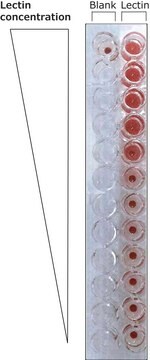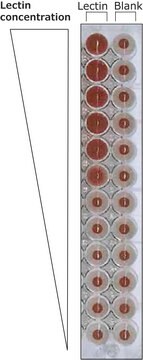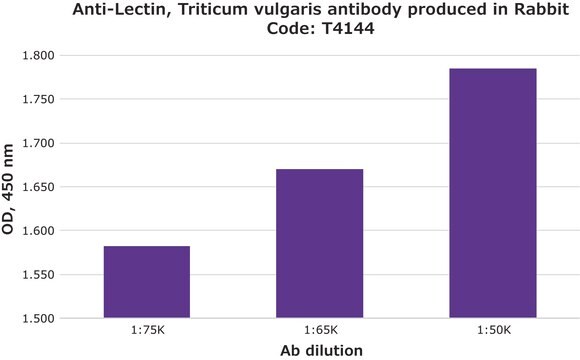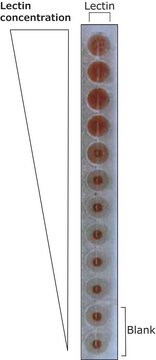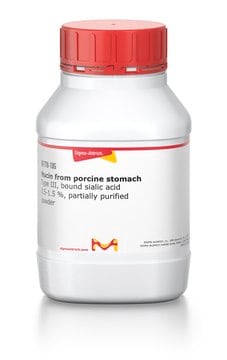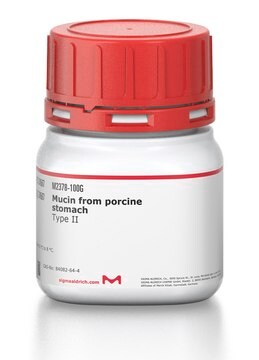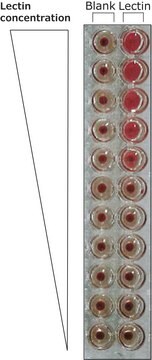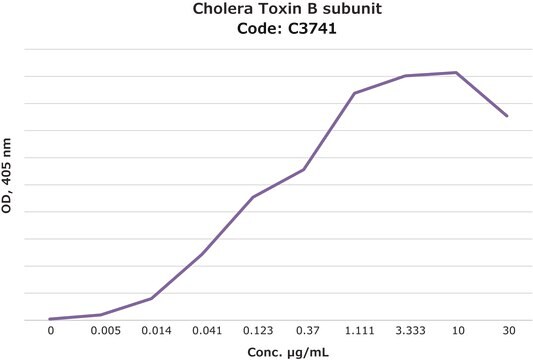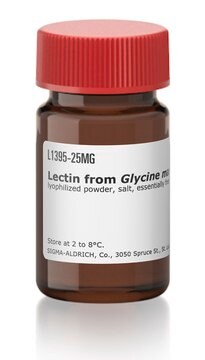L3892
Lectin from Triticum vulgaris (wheat)
peroxidase conjugate, lyophilized powder
Synonym(s):
WGA, Wheat germ agglutinin
About This Item
Recommended Products
biological source
Triticum vulgaris
Quality Level
conjugate
peroxidase conjugate
Assay
≥85% protein basis (Warburg-Christian)
form
lyophilized powder
potency
<40 μg/mL agglutination activity
peroxidase activity
50-200 units/mg protein
composition
Protein, ~90% modified Warburg-Christian
storage temp.
−20°C
Looking for similar products? Visit Product Comparison Guide
Application
- Glycoprotein sample size: 500ng
- Lectin Concentration: 0.1ug/ml
- Load samples at 500 ng of glycoprotein per lane
- Run 4-20% Bis-Tris SDS page gel
- Transfer gel to a PVDF membrane
- Block membrane for 1 hr at RT with RIPA buffer (R0278 Sigma)
- Incubate HRP lectin at 0.1ug/ml with RIPA buffer for 2 hours at RT
- Wash membrane 5 x 5 minutes with 25ml RIPA buffer
- Detect using chemiluminescent substrate (CPS1-120)
Biochem/physiol Actions
Packaging
Unit Definition
Physical form
Preparation Note
Storage Class Code
11 - Combustible Solids
WGK
WGK 3
Flash Point(F)
Not applicable
Flash Point(C)
Not applicable
Personal Protective Equipment
Certificates of Analysis (COA)
Search for Certificates of Analysis (COA) by entering the products Lot/Batch Number. Lot and Batch Numbers can be found on a product’s label following the words ‘Lot’ or ‘Batch’.
Already Own This Product?
Find documentation for the products that you have recently purchased in the Document Library.
Customers Also Viewed
Our team of scientists has experience in all areas of research including Life Science, Material Science, Chemical Synthesis, Chromatography, Analytical and many others.
Contact Technical Service